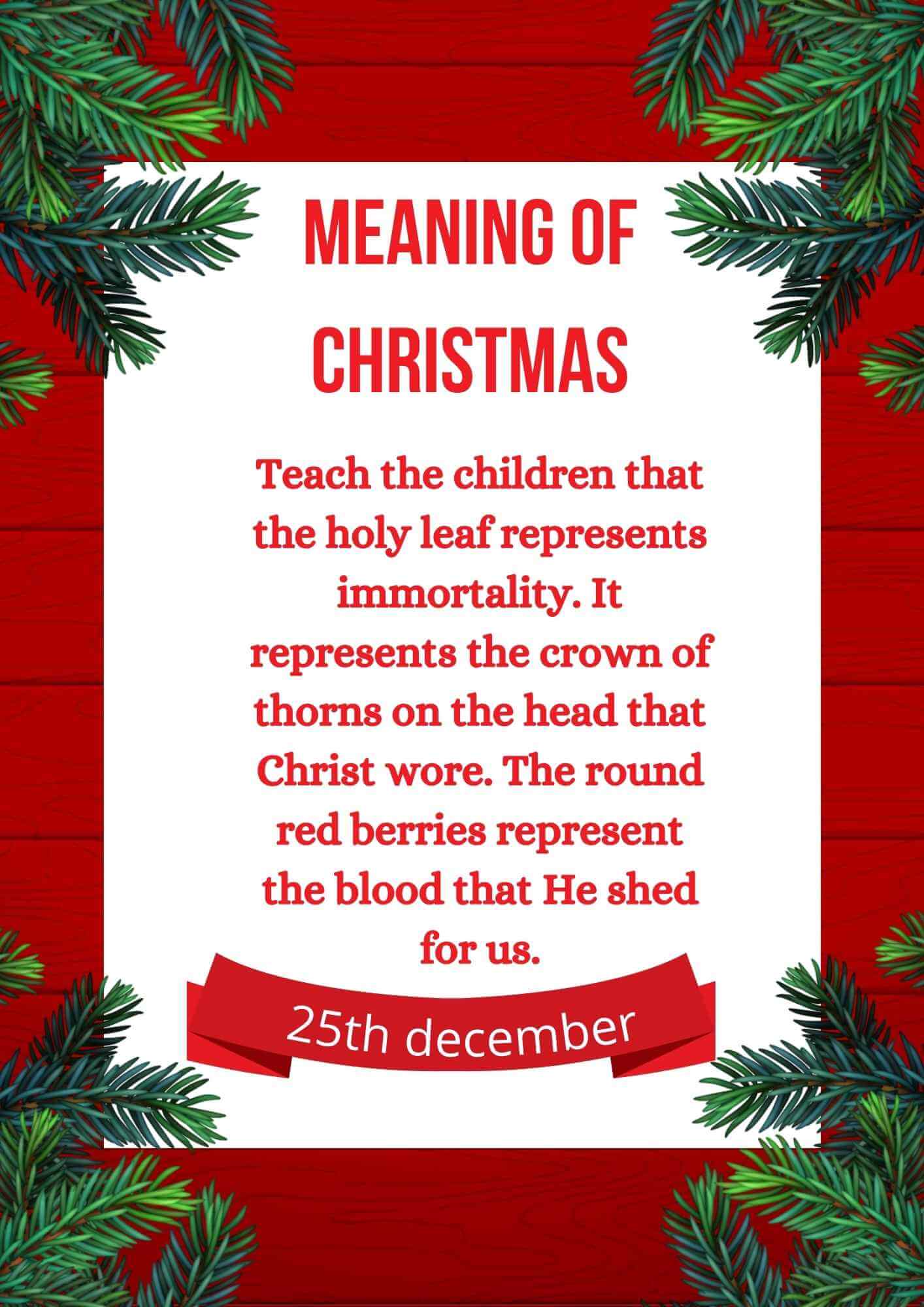Unpacking the Meaning of "Merry Christmas": A Celebration of Tradition, Joy, and Hope
Related Articles: Unpacking the Meaning of "Merry Christmas": A Celebration of Tradition, Joy, and Hope
Introduction
In this auspicious occasion, we are delighted to delve into the intriguing topic related to Unpacking the Meaning of "Merry Christmas": A Celebration of Tradition, Joy, and Hope. Let’s weave interesting information and offer fresh perspectives to the readers.
Table of Content
Unpacking the Meaning of "Merry Christmas": A Celebration of Tradition, Joy, and Hope

The phrase "Merry Christmas" is a common greeting exchanged during the festive season, often accompanied by warm wishes and joyful expressions. While its surface meaning may seem straightforward, the phrase carries a deeper significance, encompassing a complex tapestry of cultural, historical, and religious threads. This exploration delves into the multifaceted meaning of "Merry Christmas" in the English language, highlighting its enduring importance and the benefits it offers.
The Historical Roots of "Merry Christmas":
The origins of "Merry Christmas" can be traced back to medieval England, where the phrase "God ye merry Christmas" was commonly used. This greeting, a combination of "God" and "ye" (meaning "you") expressed a wish for a joyous Christmas celebration, often accompanied by feasting and merriment. The phrase evolved over time, eventually becoming the familiar "Merry Christmas."
The Religious Significance of "Merry Christmas":
"Merry Christmas" holds a profound religious significance for many, particularly Christians. The phrase celebrates the birth of Jesus Christ, a central figure in Christianity. The celebration of Christmas is a time for reflection on the teachings of Jesus, the spirit of forgiveness, love, and hope. For many, the phrase "Merry Christmas" encapsulates these religious ideals, symbolizing the joy and peace associated with the birth of Christ.
The Cultural Significance of "Merry Christmas":
Beyond its religious connotations, "Merry Christmas" has become deeply ingrained in Western culture. The phrase is synonymous with the festive season, evoking images of decorated trees, twinkling lights, gift-giving, and family gatherings. The celebration of Christmas has evolved into a time for shared joy, strengthening family bonds and fostering a sense of community.
The Importance of "Merry Christmas":
The enduring popularity of "Merry Christmas" stems from its ability to transcend cultural and religious differences. The phrase encapsulates a universal desire for joy, peace, and togetherness. It offers a moment to pause, reflect, and appreciate the good things in life, fostering a sense of optimism and hope.
Benefits of "Merry Christmas":
- Fostering Community and Connection: "Merry Christmas" promotes a sense of shared celebration, bringing people together and strengthening bonds within families and communities.
- Expressing Gratitude and Joy: The phrase allows individuals to express their gratitude for the blessings in their lives and share the joy of the festive season.
- Promoting Hope and Optimism: "Merry Christmas" carries a message of hope and renewal, reminding individuals of the possibility of positive change and brighter days ahead.
FAQs about "Merry Christmas":
1. Why is "Merry Christmas" used as a greeting?
"Merry Christmas" serves as a greeting to express good wishes and joy during the Christmas season. It encapsulates the spirit of celebration and goodwill associated with the holiday.
2. Is it appropriate to say "Merry Christmas" to everyone?
While "Merry Christmas" is a traditional greeting, it is important to be mindful of cultural and religious sensitivities. In diverse societies, it is often considered more inclusive to use alternative greetings like "Happy Holidays" or "Season’s Greetings."
3. What is the difference between "Merry Christmas" and "Happy Holidays?"
"Merry Christmas" is a specifically Christian greeting, while "Happy Holidays" is a more inclusive greeting that acknowledges the various holidays celebrated during the festive season.
4. How can I celebrate "Merry Christmas" in a meaningful way?
Celebrating "Merry Christmas" in a meaningful way involves reflecting on the spirit of the holiday, engaging in acts of kindness, spending quality time with loved ones, and appreciating the blessings in life.
Tips for Celebrating "Merry Christmas":
- Engage in Acts of Kindness: Show your appreciation for others through small acts of generosity and kindness.
- Spend Time with Loved Ones: Make time for meaningful connections with family and friends, fostering a sense of togetherness.
- Reflect on the Meaning of the Holiday: Take time for personal reflection, considering the values and ideals associated with Christmas.
- Share the Joy with Others: Spread the joy of the season by sharing gifts, smiles, and warm wishes with those around you.
Conclusion:
"Merry Christmas" is a powerful phrase that encapsulates a rich tapestry of cultural, historical, and religious significance. Beyond its surface meaning, it represents a celebration of joy, hope, and togetherness. The phrase holds the power to unite individuals, foster a sense of community, and remind us of the importance of gratitude, love, and kindness. As we embrace the spirit of "Merry Christmas," let us strive to embody the values it represents, making the world a brighter and more joyful place.








Closure
Thus, we hope this article has provided valuable insights into Unpacking the Meaning of "Merry Christmas": A Celebration of Tradition, Joy, and Hope. We appreciate your attention to our article. See you in our next article!